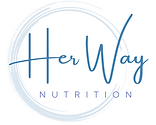The Power of Food Tracking: Unlock Your Health Goals
- milliehofmann
- Oct 8, 2024
- 3 min read

A recent study published in the Journal of Diabetes Research reveals that self-monitoring your food intake is one of the most effective strategies for long term weight loss. But the benefits of tracking your food go far beyond just shedding kilos. Let’s explore the huge advantages of adopting this habit.
Benefits of Tracking Your Food
Increases Mindfulness
Can you remember what you had for dinner last night? Often, we forget what we've eaten. Tracking your food encourages mindfulness, prompting you to log every meal and snack.
Understand Your Eating Habits
To reach your nutrition goals, you need to know your starting point. By tracking your food, you’ll discover how many calories you consume, where they come from, and the ratio of macronutrients. This information helps you create a realistic and attainable plan while also helping you to identify patterns and potential triggers for unhealthy eating habits. This self-awareness is instrumental in breaking negative cycles and developing healthier alternatives to cope with stress, emotions, or environmental cues.
Evaluate Nutritional Value
Tracking helps you identify which foods are “worth it” for your goals. You might realize that some treats, like donuts, are not satisfying enough to justify their calorie count. Conversely, you can enjoy favorite indulgences in moderation when you plan accordingly.
Accountability and Motivation
Tracking your daily food intake fosters a strong sense of accountability. It serves as a concrete reminder of your commitment to your health goals. Additionally, reviewing your progress can be highly motivating, reinforcing positive habits and encouraging you to stay on course. By logging your meals, you become more conscious of your calorie limits and the effects of each choice, whether it’s a slice of cake or a handful of nuts.
Balances Calories and Macronutrients
By logging each meal, you can assess how balanced your meals are, ensuring you meet your nutritional needs throughout the day for sustained energy.
Helps You Reach Your Goals
With a clear understanding of the caloric density of foods, you can make informed decisions when dining out. For instance, checking the calories in a dish before ordering can help you stay within your limits.
Empowers Your Choices
Food tracking gives you the freedom to incorporate a variety of your favorite foods in moderation, reinforcing a positive relationship with food.
Facilitates Planning
Use tracking to decide what to buy at the grocery store or to pre-log meals based on menus. If you make a choice you regret, reviewing it helps you learn and improve for next time.
How to Track Your Food Effectively
There are many free aps for tracking. Some of the most popular ones are MyFitnessPal (MFP), MacrosFirst and Cronometer. They feature a comprehensive food database, barcode scanning, and the ability to save personal recipes, making it user-friendly for anyone with a smartphone.
Getting Started with Food Tracking
Log Your Meals
Get used to using the app to log your meals. You can create recipes and meals that you eat frequently so that logging your food becomes quicker.
Stay Consistent
The more frequently you track, the easier it becomes, and the more likely you are to reach your goals.
Don’t Get Caught Up in Perfection
It’s better to track something than to skip logging altogether. Focus on progress and consistency.
Develop a Habit
As you get more organised with logging, planning your meals ahead of time will become second nature.
Adjust as Needed
Before eating, log your food to see if it aligns with your goals. If it doesn’t, consider alternative choices.
Key Takeaways
Food tracking promotes mindfulness and accountability.
It provides a clear picture of your current eating habits and nutritional intake.
Tracking enables informed food choices that align with your health goals.
By incorporating food tracking into your routine, you can gain valuable insights and make empowered choices that lead to lasting change. If you're ready to take the next step, reach out to Her Way Nutrition for personalised guidance from a nutrition coach who can help you tailor a plan to meet your unique needs.
References:
Ingels, J. S., Misra, R., Stewart, J., Lucke-Wold, B., & Shawley-Brzoska, S. (2017). The effect of adherence to dietary tracking on weight loss: Using HLM to model weight loss over time. Journal of Diabetes Research, 2017, Article 6951495. https://doi.org/10.1155/2017/6951495
.png)